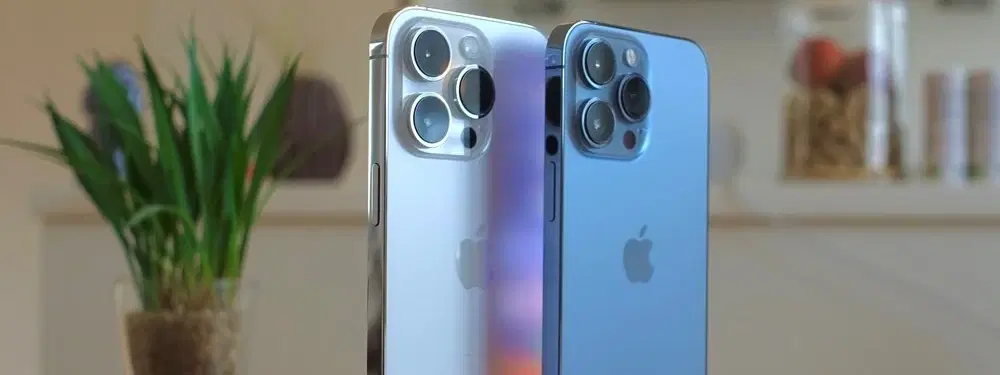
Consumer Electronics
•04 min read
The evolution of smartphones has brought unprecedented ease and versatility to our daily tech interactions. For many iPhone users, the ability to expand functionality through USB connection represents a significant leap in productivity and creativity. In this blog post, we explore expert insights on how to connect USB to iPhone, delve into the nuances of USB compatibility, and uncover practical methods for file transfers and external storage enhancements.
USB connectivity is not just a novelty; it’s a vital tool for file transfers, accessing external storage devices, and connecting advanced accessories. Whether you need to transfer cherished photos, manage essential documents, or streamline your work with smart peripheral devices, knowing how to connect USB to iPhone can empower you to do so with confidence.
Different iPhone models offer varied support for USB integration. Older models rely on the Lightning to USB connection, while newer iterations, such as the iPhone 15, are gradually embracing USB-C compatibility. Understanding your device’s USB compatibility is the first step towards seamless connectivity.
Connecting USB devices to your iPhone is straightforward with the right setup. Begin by ensuring your device is unlocked and that USB accessory settings are enabled. Use a high-quality Lightning to USB adapter or USB-C cable, depending on your model, to facilitate the connection. Once connected, explore your media files and documents through the Files app, making file transfers a breeze. Connect your device using a high-quality Lightning to USB adapter or USB-C cable to ensure smooth file transfers via USB on your iPhone, taking advantage of proven iPhone file transfer methods.
Choosing the right adapter is crucial for optimal performance. When selecting an iPhone USB adapter, consider the quality of both the adapter and the cable. A robust setup not only ensures quick file transfer but also safeguards your device against connectivity issues. For those who wish to use USB on iPhone for more advanced tasks, investing in reliable, certified adapters is a wise decision.
Expert Tip: "Did You Know?"
Using a Lightning to USB adapter unlocks a wide array of possibilities for iPhone users, from connecting external storage devices to accessing advanced USB accessories like microphones and keyboards.
The simplicity of the Files app allows you to effortlessly transfer files via USB from an external drive. To make the most of your iPhone file transfer methods, ensure your USB drive is correctly formatted, commonly in exFAT or FAT32 formats. This step is essential for ensuring smooth data transfer without any hiccups.
For those needing additional space, external storage solutions such as USB flash drives and larger capacity drives are a game-changer. By integrating external storage options into your workflow, you not only expand your file management capabilities but also streamline your digital life without accumulating unnecessary clutter on your device.
If your device struggles to recognise a connected USB accessory, a few common issues might be at play. Outdated software, unsupported accessory models, or incorrect adapter usage can all hinder connectivity. Ensure your iPhone’s operating system is current and that you are using the correct connector type for your device.
For enhanced performance, reset your accessory permissions within your device settings. Then, try using a dedicated file manager app to streamline your experience. These advanced tips help in optimising your connection setup, ensuring that your iPhone continues to leverage the full functionality of USB integration.
The world of USB accessories has grown significantly, bringing tools that boost both productivity and creativity. External microphones for clearer voice recordings, USB hubs for multi-device connectivity, and adaptable OTG accessories are just a few of the innovative tools available. Each accessory is chosen to enhance your experience without complicating your setup.
With Apple’s gradual shift towards USB-C, the horizon holds exciting prospects for improved USB accessory compatibility. Emerging trends suggest that future iPhone models will adopt more streamlined connectivity options, paving the way for broader external storage options and more innovative accessories.
You can enable USB accessories by navigating to Settings > Face ID & Passcode > USB Accessories and ensuring your device is unlocked during connection.
Utilise a Lightning to USB adapter or USB-C cable to connect the external USB device. Access files on your device through the Files app.
Yes, with the proper adapter and cable, your iPhone is fully capable of interfacing with various USB devices without hassle.
Transferring files can be easily done using the Files app or a dedicated file manager, allowing you to manage and move your data efficiently.
Most USB drives will work effectively with your iPhone when they are formatted in exFAT or FAT32, provided that a compatible adapter is used.
Select an adapter that is certified by Apple and optimized for your model, ensuring both reliability and compatibility.
The integration of USB devices with your iPhone not only enhances the device’s capabilities but also transforms the way you handle file management and accessory use. By understanding USB compatibility, selecting the right connectivity tools, and troubleshooting common issues, you empower yourself to get the most out of your iPhone experience. This expert insight into USB connectivity reflects a forward-thinking approach that resonates with the lifestyle of today’s tech-savvy consumer. With Tata Neu, enjoy express delivery for orders placed before 6pm along with unmatched after-sales support and earn up to 5% NeuCoins on every purchase, making your shopping experience both rewarding and hassle-free.